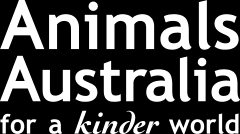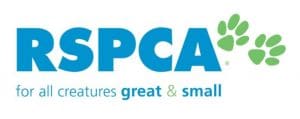 PEAK animal right body Animals Australia, the RSPCA and independent parliamentarian Andrew Wilkie believe the Moss Review into the Department of Agriculture and Water Resources live export capabilities confirms why the trade must end.
PEAK animal right body Animals Australia, the RSPCA and independent parliamentarian Andrew Wilkie believe the Moss Review into the Department of Agriculture and Water Resources live export capabilities confirms why the trade must end.
In releasing the Moss Review report into the culture, capability and investigative capacity of the live export regulator, Minister for Agriculture and Water Resources David Littleproud said he was resetting the live export industry to make it more sustainable.
The minister and the department have supported the review’s 31 recommendations, including an independent external Inspector General position, a principal regulatory officer and new animal welfare branch.
However, Animals Australia said today the review completed by Philip Moss has in eye-opening detail, articulated what the body’s experience has been over the past 15 years.
“Laid bare is an industry that has a cultural acceptance of cruelty and a blatant disregard for the law,” AA chief investigator Lyn White said.
Mr Wilkie said the review into the regulation of live animal exports is further proof the trade needs to be shut down and he would introduce another Private Member’s Bill to ban live export.
Ms White said the department has been completely out of its depth in trying to regulate these companies.
“Terrible abuse and blatant regulatory breaches have been dismissed and ignored.”
Ms White said while it’s somewhat of a relief to have the truth on the public record, the great tragedy is the number of animals who have suffered extreme and prolonged abuse at the hands of this industry.
“We must never forget that exporters have been prepared to supply animals to tendon slashing, eye stabbing, sledgehammering and mass suffering and deaths from heat stroke on ships.”
“The politicians who have given blind support to this trade are equally responsible,” she said.
“They fuelled the arrogance of exporters and undermined the regulator.
“There is very good reason why these companies came to believe that they were untouchable.”
Ms White said there is not a single valid justification for this industry being allowed to continue.
“It does not deserve to exist, it does not need to exist, and the vast majority of Australians want it to end.”
“This is the third of three damning independent reviews into the live export trade over the past 15 years. The sheer scale of intentional animal abuse and regulatory breaches over decades demands that the industry be shut down,” said Ms White.
RSPCA has no faith in DAWR’s ability to change
 RSPCA Australia senior policy officer Dr Jed Goodfellow said the report’s damning revelation of “the rot of the live export industry” and the failure of the department as the regulator is long overdue, but changes proposed won’t be enough to end the inherent cruelty.
RSPCA Australia senior policy officer Dr Jed Goodfellow said the report’s damning revelation of “the rot of the live export industry” and the failure of the department as the regulator is long overdue, but changes proposed won’t be enough to end the inherent cruelty.
“The government is kidding itself if it thinks the Moss Review recommendations are going to fix the live sheep trade.
“This is the third damning review of the live export trade we’ve seen in fifteen years, and the same problems keep reappearing – a callous disregard for animal welfare, inherent conflicts of interest and an impotent regulator,” he said.
“This review is based around the premise that the live export trade enjoys the unwavering support of government regardless of its failings and catastrophically bad performance.
“That’s the mindset that really needs to shift.”
“The findings of the Moss Review show the importance of putting animal welfare and scientific evidence at the centre of the regulatory system.
“In fact, if these findings were actually acted on, live sheep exports would be unviable, which is why we need an orderly transition to a meat export trade,” he said.
Dr Goodfellow said the RSPCA had no faith in the department’s ability to change, given a number of recent incidents.
These include the department’s approval of a new export licence for Rural Export and Trading WA, “a company with strong links to disgraced exporter Emanuel Exports and arguably the worst remaining live sheep exporter in the business.”
“We’re also yet to see any of the evidence gathered by these much-lauded departmental observers on board, despite multiple and ongoing attempts by the RSPCA to have that evidence released under Freedom of Information laws,
“And behind the scenes and as recently as last week, our experience with the Australian Standards for Export of Livestock review process have confirmed these conflicts prevail,” said Dr Goodfellow.
He said it was reassuring to see the review’s recommendations recognise the RSPCA’s repeated calls for independent and external oversight of the live export sector and proper enforcement of live export standards.
“But what we really need to see is the RSPCA’s previously recognised role in providing input in decision-making and standard-setting around animal welfare re-instated.
“The fact is Australians can never, and should never, have any confidence that animal welfare will ever be assured in the live export industry,” Dr Goodfellow said.
“These immediate improvements are welcomed in the interim, but the sooner we can commence the phase-out of this volatile and risky trade, the better.”
Moss slates department skills, culture and processes
The Moss Review said that, “by its nature, live animal exports present a high risk to animal health and welfare.”
It found that there have been instances of non-compliance with animal welfare standards and instances of animal cruelty that have not been anticipated by the regulatory framework or evoked an appropriate regulatory response.
Mr Wilkie welcomed some of the review’s recommendations, including the establishment of an independent external Inspector-General of Live Animal Exports and more random inspections on ships.
“These recommendations are completely meaningless, however, unless the government acts on them in full.”
“Sure, the minister has said he will implement all the recommendations, but the fact is the government will likely say anything to get people to move on and forget about the horrific cruelty.
“In any case, even if the Government implements these recommendations, it is only a small improvement to a trade that is systemically cruel,” he said.
Mr Wilkie said no amount of regulation can make live export not cruel.
“It’s also unforgivable that the government has silenced its critics in the parliament by giving them ministerial posts in an attempt to stop them supporting a ban on live sheep exports.
“I will shortly again introduce to Parliament a Private Member’s Bill to ban live export.”
The bill will Mr Wilkie’s seventh bill to end live export and he hoped it would be supported by the expanded crossbench.
“I also hope that government and opposition members who’ve spoken out about the trade will show some backbone and support the bill.”
The Moss report also highlighted:
– the department’s reliance on exporters and accredited vets reporting on conditions and outcomes of voyages, including information that did not indicate animal welfare conditions which warranted further regulatory action
– inadequate reporting that did not convey the extent of the problems on the MV Awassi Express in August 2017 and other voyages between May and November 2017
– inadequacy of mortality as the predominant measure of animal welfare in the regulatory approach, in the Heat Stress Risk Assessment (HSRA) model used by industry and as a trigger for the department to investigate
– insufficient means of assuring exporter compliance with regulatory obligations while consignments of livestock were at sea.
The review found the department has rarely used its powers to suspend and cancel export licences.
It said the regulator relies significantly on industry compliance and reporting. “
“Yet some parts of the industry may have breached the trust which the regulatory framework vests in it.”
The review also found that although on-board veterinarians are accredited by and report to the department, they are employed by the exporter.
“This role appears to be inherently conflicted because AAVs are required to report on the condition of live export consignments for which their employer is responsible. Reporting of adverse conditions to the department will have an impact on the exporter.”
Mr Moss noted that as a key measure the department should continue to receive reporting independently of exporters about the health and welfare of live animal export, especially for high risk consignments, to improve oversight and ensure exporter compliance.
The review found that the department’s dispersal of its regulatory capability for live animal exports across a number of groups, divisions and branches detracted from effective regulation and “the characteristics necessary for effective regulation including skills, resources and technology are lacking to the required extent.”
Mr Moss said the department needed to establish either a coordinated or consolidated investigative capability, because investigations conducted by different branches can lead to poor investigative outcomes.
“Furthermore, the department’s investigative arrangements are unable to report the outcomes of investigations in a timely manner.”
The departure of experienced staff members has also reduced the department’s capacity to regulate and investigate non-compliance.
Development of the department’s animal welfare technical capacity and scientific expertise would enable it to respond effectively to current and emerging animal welfare concerns, the review said. Mr Moss said DAWR’s multiple information technology systems do not facilitate efficient regulation.
“These systems do not relate to each other, the information they contain is not easily compared, and the capacity for analysis is reduced.”
Mr Moss said investment in on-board technology solutions would increase the level of transparency as sought by stakeholders.
The review found that the department’s focus on trade facilitation means it is balancing competing factors in its role as the regulator of live animal exports.
“Some stakeholders and department staff members told the review that the department’s trade facilitation and regulatory functions are contradictory.
“The focus on trade facilitation and industry deregulation appears to have had a negative impact the department’s culture as a regulator.”
The review found that the department does not have a single regulatory mindset.
“There is a sense of disconnection between the policy areas of the department and the regional staff members who engage directly with the industry.
“Exporters are generally supportive of the department’s regional officers, but regard policy staff as having insufficient experience and background in relation to live animal exports.”
Mr Moss said other factors having adverse impacts on the department’s regulatory culture include a lack of focus on and expertise in animal welfare and a need to improve DAWR’s connection with the live export sector. The re-establishment of an animal welfare branch is recommended to bring greater focus to this topic and introduce relevant expertise to the department. This capacity would improve policy development and contribute to an effective regulatory culture.
Mr Moss said the regulation of live animal exports operates under a cost-recovered model.
“Some parts of the industry appear to think they are paying for a service.
“This attitude is a risk to the relationship between the department and the industry,” he said.
“It must be clear in the mind of the party paying for a regulatory function and the regulator itself that the former is covering the cost of regulation, not paying for a service.
“Full cost recovery relating to regulation is recommended.”
Mr Moss found that from a cultural perspective, the department as the regulator needs to be dynamic to detect operational trends and breaches of the required standards and be ready to adjust its regulatory response accordingly.
Mr Moss said greater transparency is needed in the live animal export industry, which has to demonstrate its commitment to animal health and welfare to the Australian community to maintain its social licence.
Regulation cannot make live export ‘not cruel’ – Wilkie
 Mr Wilkie welcomed some of the review’s recommendations, including the establishment of an independent external Inspector-General of Live Animal Exports and more random inspections on ships.
Mr Wilkie welcomed some of the review’s recommendations, including the establishment of an independent external Inspector-General of Live Animal Exports and more random inspections on ships.
“These recommendations are completely meaningless, however, unless the government acts on them in full.”
“Sure, the minister has said he will implement all the recommendations, but the fact is the government will likely say anything to get people to move on and forget about the horrific cruelty.
“In any case, even if the Government implements these recommendations, it is only a small improvement to a trade that is systemically cruel,” he said.
Mr Wilkie said no amount of regulation can make live export not cruel.
“It’s also unforgivable that the government has silenced its critics in the parliament by giving them ministerial posts in an attempt to stop them supporting a ban on live sheep exports.
“I will shortly again introduce to Parliament a Private Member’s Bill to ban live export.”
The bill will Mr Wilkie’s seventh bill to end live export and he hoped it would be supported by the expanded crossbench.
“I also hope that government and opposition members who’ve spoken out about the trade will show some backbone and support the bill.”

Peter, they’ll do nothing, because in other countries the arrogant “we know better” mentality of Animals Australia wouldn’t be tolerated.
Humans have been transporting and consuming animal protein for millions of years; it’s actually called a food chain. Animals Australia and Wilkie need to accept that we’re all carnivores, but because we live in luxury in Australia we can dictate to people who don’t enjoy similar standards of living that your not entitled to fresh mutton. If these fanatics had there way they would shut down the entire livestock industry nothing will appease them and frankly most people are sick of them.
We’re right behind you Mr Wilkie! Australians want to be counted. Live export has to go.
Australian live sheep exports amount to 11 percent of world live sheep exports putting Australia in fifth place. Australian live cattle exports amount to 11pc of world live cattle exports, putting Australia in third place. What do Animals Australia intend to do about the other 89pc of sheep and cattle exported around the world?
I hope with all my heart that Mr Wilkie will submit another ban live exports bill. It is disgusting that the government has silenced its critics by offering them ministerial posts. Appalling that an urgent issue such as the live export and it’s inherent cruelty can be so easily bought off by people who supposedly were a voice for the voiceless. It is so disheartening.
How many decades have we been saying this? Animals Australia since 2002; Stop Live Exports since the 1980s.
As Lyn said – good to have the truth out in public, but tens of millions of animals have endured inconceivable pain, suffering, cruelty and abuse – that can never be undone. There is no place for this trade internationally, but most certainly not from a supposedly advanced, compassionate nation. Let’s take the high road and drag everyone else up to our standard.